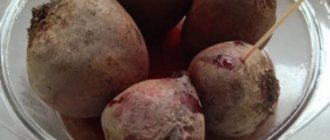To date, there is no remedy that could act as a preventive measure for cancer. This is explained by the fact that the mechanism of oncology development, as well as its course, has a rather complex algorithm. But pharmaceutical companies offer a number of nutritional supplements that can suppress predisposing factors that can cause cancer.
How it works?
Laboratory studies have shown that some cancers occur due to a lack of certain substances in the body, in particular vitamins and minerals. Dietary supplements, which are considered additives to the basic diet, can compensate for the deficiency of these substances, thereby supporting the immune system and improving health.
There are many advantages of such additives, including the naturalness of the composition. A number of studies indicate their safety and ability to be completely eliminated from the body. But is this product really safe?
Each drug has contraindications and side reactions, to which patients prefer to turn a blind eye, assessing all the possible benefits of the dietary supplement. There is also a danger in exceeding the recommended dosage, which can place increased stress on the liver and kidneys.
Cancer Prevention
According to WHO, almost a third of cancer cases are preventable. Therefore, one of the key health strategies is cancer prevention.
| PRIMARY CANCER PREVENTION |
This group of preventive measures includes measures aimed at changing lifestyle, changing diet, and eliminating risk factors for the development of cancer. Let's look at each factor in more detail.
| PROPER NUTRITION AS A KIND OF CANCER PREVENTION |
The following lead to an increased risk of cancer:
- Obesity.
Tumors of the female reproductive system (uterine cancer, breast cancer) are more common in overweight women. Therefore, breast cancer prevention begins with weight normalization. - Excessive consumption of fat
, especially cooked fat. The total amount of fat eaten per day should not exceed 60 grams. - Eating unhealthy foods
– smoked meats, fried foods. Abuse of them increases the risk of colon cancer. - Consumption of sausages
- nitrites are used in their production, used as a dye. Nitrites give foods their beautiful pink color, but they are also a weak carcinogen. No one is forcing you to give up sausages completely, but eating them exclusively can be dangerous to your health.
The following will help reduce the risk of developing cancer:
- Vegetables and fruits
- they contain large quantities of vitamins and microelements that promote the normal functioning of body cells and prevent their transformation into cancer cells. - Cellulose.
This is a food element that is not digestible in the human body (found in large quantities in vegetables, grains, and fruits). However, fiber has a huge impact on the digestive process and reduces the likelihood of colon cancer.
| LIFESTYLE AND BAD HABITS |
- Tobacco smoking
is the clearest preventable risk factor for lung cancer, as well as cancers of the larynx, lips and tongue. Chronic smokers significantly increase the risk of developing cancer in other locations: stomach, uterus, pancreas. The risk is increased not only by active smoking, but also by passive smoking – the content of carcinogens in the smoke exhaled by smokers is only slightly lower. - Lack of physical activity
leads to obesity, and its consequences are discussed above. Exercising not only promotes weight loss, but also increases the overall tone of the body and the tone of the immune system. The immune system fights cancerous transformation of cells, so its condition is important in terms of cancer prevention. - Alcohol abuse
leads to metabolic disorders in the body, reduces overall resistance (resistance), which significantly increases the risk of cancer.
From the above it follows that quitting smoking, drinking alcohol, and regular exercise is a comprehensive prevention of cancer. All these methods can be classified as traditional methods of cancer prevention, which are confirmed by scientific research.
| HEALTHY SLEEP AND CALM NERVES |
Getting enough and proper sleep at night is very important for cancer prevention. Some biochemical processes and the formation of individual hormones occur at night and early in the morning, which is why it is so important to achieve a state of deep and restful sleep at night and at dawn. This is especially true for women in whom the synthesis of the hormone prolactin occurs around 4 o’clock in the morning. Even if you maintain a good physical activity and diet, it is impossible to talk about a healthy lifestyle and reducing the risk of cancer without good sleep and rest. The role of stress in increasing the likelihood of cancer is controversial and has not been conclusively proven, but still, people who often experience nervous strain are more prone to various diseases, so it is better to try to take care of your nerves. Trying to relieve stress with a glass of wine, beer or something stronger, a cigarette or both at the same time is not only pointless, but also fraught with malignant tumors, so it is much better to prefer the gym, water treatments or walks.
| PREVENTION OF INFECTIOUS DISEASES |
The connection between the development of certain types of cancer and viral and bacterial diseases has been absolutely proven. Examples could be:
- hepatitis B and C viruses, which increase the risk of liver cancer several times;
- the presence in the stomach of Helicobacter pylori (bacterium), which contributes to the occurrence of not only gastritis and ulcers, but also stomach cancer.
- some strains of papillomavirus (HPV), leading to the development of cervical cancer.
Measures to prevent these types of cancer include vaccination against relevant viruses and bacteria, as well as avoiding unprotected sex (the main route of transmission of these infections is sexual) with new, untested partners. Vaccination against hepatitis B is already included in the national vaccination schedule, and you can get vaccinated against HPV at your own request. You can get rid of Helicobacter pylori by undergoing a course of eradication therapy.
| ENVIRONMENTAL FACTORS |
Environmental pollution as a result of human activity is one of the most important factors in the growth of the overall incidence of cancer. Preventive measures in this case should be aimed at reducing the degree of pollution. If there are strong pockets of environmental pollution, only changing your place of residence will help reduce the likelihood of cancer - to do this, it is enough to move away from smoking factories and cars. In rural areas, far from large cities, the incidence of skin cancer, lung cancer and other cancers is approximately 1.5 times lower than in large industrial centers and megacities. This difference is especially clearly noticeable when studying the age structure of cancer - in cities, young people are more likely to die from cancer.
| PROFESSIONAL “HARMS” |
Working in hazardous working conditions, where a person is in daily contact with carcinogens, significantly increases the incidence of cancer. To eliminate this risk factor, a person must either change his place of work or carefully observe safety precautions: wear protective clothing, respirators, pay great attention to hygiene - take a shower every day at the end of the working day.
| IONIZING RADIATION |
Ionizing radiation includes x-rays and ultraviolet radiation.
In ordinary life, a person encounters X-ray radiation most often within the walls of medical institutions - when undergoing X-ray examinations. There is only one way to reduce the total radiation dose, which is the main risk factor for oncology: undergo X-ray examinations only as prescribed by a doctor and, preferably, using low-dose devices.
Ultraviolet rays affecting the skin can cause basal cell carcinoma and melanoma. Therefore, in order to prevent cancer, it is advisable to be exposed to insolation (sun exposure) as little as possible, and it is also not recommended to visit solariums.
Please note:
to a greater extent, these wishes apply to people at risk - those who have had cases of similar cancers in their family, as well as people with fair skin that are sensitive to tanning.
| SECONDARY CANCER PREVENTION |
This group of preventive measures includes various types of medical examinations aimed at identifying precancerous diseases, as well as precursors of oncology. The following examination methods are used:
- fluorography
- x-ray examination of the lungs aimed at identifying lung and mediastinal cancer; - mammography
- x-ray of the mammary glands, which allows one to suspect breast cancer; - cytological examination of a smear from the cervix and cervical canal
a - prevention of cervical cancer; - endoscopic studies.
In Japan, absolutely all people over the age of 35 undergo a colonoscopy every six months, which makes it possible to detect colon cancer at an early stage. This should also include bronchoscopy, which makes it possible to exclude cancer of the bronchi and lungs. - MRI and CT
, including with contrast; - blood testing for tumor markers
- special chemicals whose concentration increases when oncology occurs. Most types of cancer have their own tumor markers.
Secondary cancer prevention measures are implemented at the level of state programs: all people over a certain age must undergo fluorography, women over 35 years old must undergo mammography. If you suspect cancer, you should consult an oncologist who will prescribe clarifying studies. Please note:
the introduction of cancer prevention screening programs has increased the detection of the disease in the early stages by 50%.
This, in turn, made it possible to reduce mortality from cancer by 15-20%. Secondary prevention methods also include cancer self-diagnosis
. The effectiveness of self-diagnosis is especially clearly visible in the example of breast cancer prevention - every woman should be able to palpate her mammary glands for the presence of formations in them. During a consultation with an oncologist, you can gain the necessary skills and apply them as often as possible - the appearance of even a small formation in the mammary gland is a reason for consulting a doctor and a more detailed examination.
| TERTIARY CANCER PREVENTION |
Preventive measures from this group are aimed at identifying tumor recurrences in patients who have already received treatment for cancer, as well as at early diagnosis of metastasis. In most cases, these activities are carried out by an oncologist, whose consultation can be obtained at any district clinic or at a specialized oncology clinic.
Important:
Every patient who has ever been treated for cancer should undergo regular medical examinations by an oncologist.
The frequency of these inspections:
- The first year – quarterly.
- The second year – once every six months.
- The third and subsequent ones – annually.
In conclusion, I would like to note that there is no ideal cure for either cancer or other diseases, and even if you follow the recommendations of specialists, the likelihood of a tumor remains. However, a healthy and active lifestyle, proper nutrition and good mood can reduce risks to a minimum, being the key to longevity and well-being.
Cancer prevention or placebo effect?
To date, not a single pharmaceutical drug or dietary supplement can completely prevent the development of cancer. This is explained by the fact that the disease has many causes that are not related to lifestyle and nutrition. More than half of cancers occur due to defects in genes, the correction of which is beyond the capabilities of even modern genetic engineering.
The supplements have received very controversial reviews. Supporters of dietary supplements point out that with their help it is possible, if not to prevent cancer, then to normalize the functioning of the entire body. Opponents complain about the placebo effect, when patients are in fact given a dummy, and improvement in their general condition is nothing more than self-suggestion.
There are no reliable facts that could confirm or refute the theory regarding the ability of dietary supplements to effectively suppress cancer cells and prevent their formation into malignant tumors. On the contrary, some studies have shown the other side of the coin. Certain components, which are in excess in the body, can have a negative effect and provoke the active growth of cancer cells. Therefore, to accept or not to accept is a purely individual question.
Oncology: the most common diseases
Cancer is a malignant formation in the tissues of the body. Pathological formations can affect any tissue. Blood cancer is also common. The most common oncological diseases: • lung cancer; • cancer of the pancreas, liver, stomach and intestines; • cancer of the mammary glands, cervix and uterus - in women, and prostate cancer - in men; • blood cancer; • anal cancer.
In most cases, oncology is asymptomatic or has mild symptoms that can be mistaken for a manifestation of another disease. And yet it is worth paying close attention to any atypical changes in the well-being and functioning of the body.
What is the danger and is the risk justified?
The fact is that the body functions as a single whole, and if adjustments are made with the help of dietary supplements, the results can be very unpredictable. The situation is similar to taking vitamin complexes. Only a doctor can prescribe drugs based on the true needs of the body.
For example, a man at the age of 16 lost his grandmother, who died of cancer. Now panic attacks regarding a possible repetition of the scenario with one’s own participation do not allow me to sleep peacefully at night, and the rest of my life will be aimed at preventing cancer. The most non-standard methods are used, including dietary supplements. But does a young body need such supplements and how will it react to various components, which are already in abundance?
It is impossible to say with certainty exactly how dietary supplements can affect health. And while some patients can boast of strengthening their immune system, others complain of constant nausea, indigestion and other negative symptoms.
Despite the fact that manufacturers convince of the absolute safety of dietary supplements, there are risks of developing complications after taking them. Therefore, you should not spend a lot of money on drugs that the body does not actually need. Most doctors are against this unconventional approach to cancer prevention, pointing to a high level of risk with relatively little benefit.
Tertiary prevention
Tertiary prevention is necessary for those people who have already had cancer. The essence of the measures is the timely detection of relapses. To achieve this, oncologists prescribe regular medical examinations for their patients.
In the first year after treatment, you need to visit the doctor once every 3 months, in the second – once every six months, and in the third – once a year.
Thus, cancer prevention in children and adults can be primary, secondary and tertiary. Adjusting your lifestyle will minimize the risk of developing cancer, and regular examinations will help you detect precancerous conditions or a malignant tumor in a timely manner, which will allow you to successfully get rid of them.
The most common dietary supplements for cancer prevention
Among the popular means are:
- CoQ10 is a powerful antioxidant that removes waste and toxins from the body and helps release more energy. Coenzyme is able to positively influence the immune system, as well as enhance intracellular metabolism. The nutritional supplement gives maximum results when taken systematically, as it uses a cumulative effect.
- Resveratrol – prevents DNA damage to cells, preventing the formation of mutations. Promotes the complete breakdown of carcinogenic substances, as well as their complete removal from the body. The functioning of the immune system is normalized, which has a beneficial effect on the entire body. Resistance to pathogenic microorganisms increases.
- Curcumin is a substance that can destroy cancer cells, which is effectively used in the treatment and prevention of cancer. It has been scientifically proven that curcumin is capable of exhibiting a pronounced cytostatic effect comparable to chemotherapeutic agents. When taken systematically and in excess of the dose, it can cause the development of a number of adverse reactions, including those from the digestive tract.
- Vitamin D – normalizes metabolic processes in the body and also promotes the absorption of other nutrients. The drug should be prescribed by a doctor, since an excess of the vitamin is no better than its deficiency, which is accompanied by a whole range of negative manifestations.
- Beta-glucan - the drug is able to bind to cancer cells, making them more visible to immune cells, which contributes to their complete destruction.
Like any other means, dietary supplements have contraindications, so you should not take them without a doctor’s prescription. The advisability of taking it has not yet been proven or confirmed, but the risks to which the body is exposed can provoke the development of adverse reactions. There is no guarantee that cancer will not occur after taking drugs from this group. Therefore, there is no need to experiment on your own health, especially since there are many similar ways to prevent cancer.
Primary prevention
The primary stage of cancer prevention is to adjust a person’s lifestyle, during which all factors that contribute to the development of the malignant process are eliminated.
Nutrition
One of the main principles of primary cancer prevention is rational nutrition. There is no need to follow any strict diets or deny yourself everything. You just need to adhere to certain recommendations for proper nutrition.
To reduce the risk of developing a malignant tumor, it is necessary to exclude from the diet or limit the consumption of all foods that cause harm to the body. Don't indulge in foods like:
- Red meat.
- Canned food.
- Semi-finished products.
- Fast food.
- Fast food products.
- Smoked dishes.
- Fried food.
The following foods are recommended for cancer prevention:
- Vegetables and fruits.
- Greenery.
- Vegetable oil.
- Legumes and cereals.
- Lean meats.
- Fish.
- Low fat dairy products.
It is recommended to pay special attention to food preparation. You need to cook it by boiling, stewing, baking or steaming. Frying foods is prohibited, as this process releases carcinogens that provoke pathological changes in tissues.
Also, do not forget about the drinking regime. A person should drink at least 1.5-2 liters per day. This allows you to avoid dehydration and remove harmful substances from the body. It is also recommended to drink decoctions and infusions based on medicinal herbs to prevent cancer.
Bad habits
Bad habits are the main enemy of health. Smoking and drinking alcohol inhibit the functioning of the immune system and negatively affect the condition of internal organs. Excessive alcohol consumption often leads to the development of cancer in organs such as the esophagus, oral cavity, and stomach.
Alcohol contains substances that negatively affect cell development. When tissues are frequently exposed to alcohol, a process of pathological change begins in them, which leads to various diseases, in particular cancer.
Smoking is no less harmful. Cigarette smoke contains a large number of harmful components. In addition, inhaling smoke burns the tissues of the respiratory tract. All this causes cell mutation. It is worth noting that not only active but also passive smoking is harmful.
Physical activity
In the modern world, people are exposed to less and less physical work, as all conditions for a comfortable life are created. This is especially true for city residents whose work involves sitting or standing for a long time, as well as at the computer.
At the same time, not everyone goes in for sports in their free time, but this is very important. The body requires physical activity every day. Otherwise, it weakens, immunity decreases, the person begins to suffer from various diseases, becomes intolerant and weak.
To prevent cancer and many other diseases, you should set aside time every day for exercise. It is advisable to give preference to any sport, for example, swimming, running, or cycling. If this is not possible, then you should at least do gymnastics during the day.
Healthy sleep
Getting enough sleep is very important for preventing tumors. After all, the implementation of certain biochemical processes and the production of certain hormones occurs during specific hours of a person’s sleep. Doctors recommend getting full sleep at night, going to bed and getting up at the same time.
Avoiding stress
Stressful situations adversely affect the state of the body, triggering various pathological processes in it. Human health depends on the functioning of the nervous system, so it is worth keeping it normal. It is not always possible to avoid stress, but you need to know how to relieve stress.
Under no circumstances should you relieve stress with alcohol or cigarettes. Firstly, it will not help, and secondly, it will create an even greater threat to health. Therefore, in case of poor psycho-emotional state, in order to prevent malignant tumors, preference should be given to sports activities, walks, and meetings with loved ones.
Use of chemoprophylaxis
Chemoprevention of cancer is a new method for preventing the development of malignant diseases. It is not yet very common in medicine. This method involves taking special medications that prevent the emergence and development of cancer cells.
Chemoprevention of cancer is intended for both healthy people and those who have already survived cancer.
Prevention of infectious diseases
There are a number of infectious diseases that can increase the risk of developing cancer, so it is necessary to get vaccinated in a timely manner, avoid casual sex and simply follow the rules of personal hygiene.
What infections should you avoid?
- Hepatitis B and C.
- Human papillomavirus.
- Epstein-Barr virus.
- Helicobacter pylori.
- HIV infections.
Patients with these infections need to visit their doctor regularly and undergo preventative treatment to keep the disease under control and prevent the development of cancer.
Lifestyle and bad habits
Lifestyle is what needs to be reviewed first to prevent the development of cancer. It is imperative to stop smoking, as inhaled smoke contains a large number of compounds that have a carcinogenic effect and accumulate in the body. Quitting smoking is not enough; you need to do breathing exercises in the fresh air, preferably in a coniferous forest. This way the lungs will be cleared of carcinogenic compounds faster.
Abuse of alcoholic beverages leads to the retention of toxic substances in the body, poor circulation, metabolic disorders and decreased immunity. Prevention of cancer requires abstaining from alcoholic beverages, drinking them only on rare occasions and in small quantities.
At the same time as giving up smoking and alcohol, you should increase physical activity in order to get rid of excess weight, increase the overall tone of the body, strengthen the immune system and speed up metabolism.
Eating right to help prevent cancer
The easiest way to prevent cancer is to prevent cancer with food. You won’t need expensive products for this; you can get by with what you can grow yourself or buy in any store.
Adequate nutrition is not only the prevention of stomach and intestinal cancer, but also malignant tumors of any location. The essence of the anti-cancer diet is the consumption of large quantities of fresh vegetables and fruits, whole grain cereals, and natural fermented milk products. In addition, the diet should contain foods that have an antitumor effect.
Products for the prevention of cancer:
- White and green tea.
- Legumes.
- Cruciferous vegetables.
- Greenery.
- Reishi mushroom.
- Sweet potato.
- Onion and garlic.
- Berries (blueberries, strawberries, wild strawberries, currants, cranberries).
- Red grapes, black raisins.
- Brazilian nut.
- Bright vegetables and fruits.
What should you exclude from your diet?
- Fried foods.
- Margarine.
- Semi-finished products.
- Fat meat.
- Products with preservatives and dyes.
- Mayonnaise.
- Sausage, sausages.
- Canned food, marinades.
For the diet, it is important to maintain a drinking regime to ensure normal blood circulation and metabolism. It is recommended to drink clean, not tap or fluoridated water, in an amount of at least 1.5 liters. per day.
Attention! Start your day with fruits and fruit juices - they contain substances that stimulate metabolism and protect the body from free radicals.
What is prevention and what does it involve?
Cancer prevention is a combination of protective measures aimed at preventing the development of malignant tumors. At its core, this is adherence to a healthy lifestyle, useful not only for oncology, but also for any chronic diseases.
Knowledge of the causes of cancer development allows maximum protection from the effects of provoking factors, reducing the incidence rate and diagnosing the malignant process at the very first stage of development.
Academician N.N. Petrov said back in 1947: “We already know so much about the causes of cancer that it is not only possible, but absolutely necessary to put the anti-cancer fight on the rails of prevention.” His idea has found practical application, and protective measures are used not only to prevent, but also to treat oncology.









